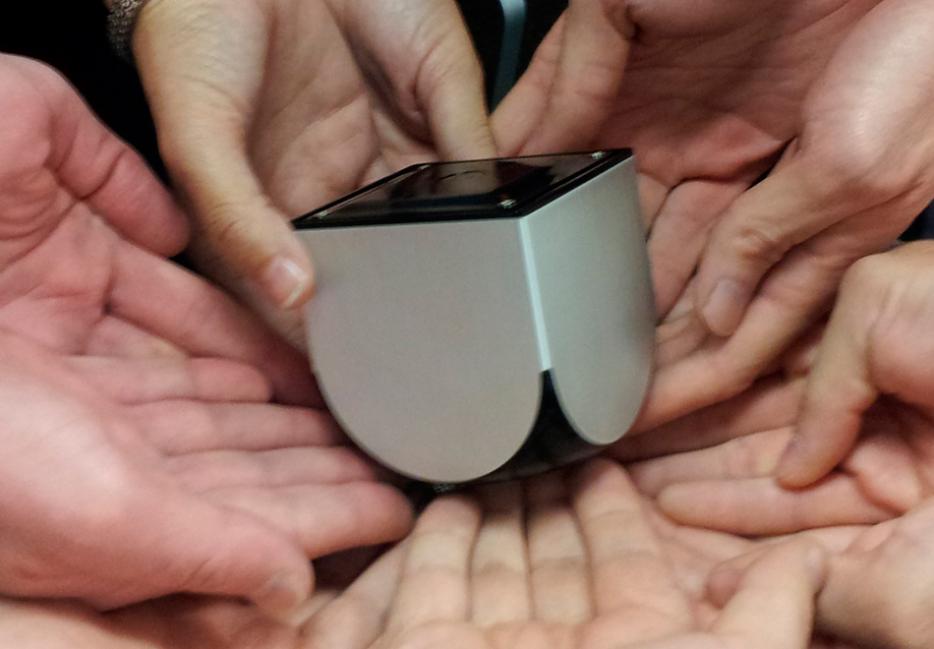The way many feel about books, I feel about video games. We tend to think that it’s games that are the menace to books, but they’re actually in the same boat: just as some argue video- and web-based forms of culture threaten to supplant the sustained attention of reading, quick and often superficial handheld games threaten the more traditional long-form gaming I was raised on. Basically, you damn kids get your Angry Birds off my pixelated, Mario-filled lawn.
So you might say that I welcome the less-than-stellar debut of new much-ballyhooed game console Ouya with the kind of relish a certain kind of bibliophile might greet the shutdown of the Internet. Which is to say, it’s a perspective that’s as wrong as it is stupid, but as examples of ugly schadenfreude go, it’s one both the gaming and book worlds should pay attention to.
Ouya, if you don’t know, is an independent video game console that was funded through Kickstarter. The point, as is almost standard with Kickstarted projects, was to “disrupt” established business, “democratize” it, and to “put air quotes” around games as you play them. (Maybe not that last part.) It’s yet another in a long line of start-ups meant to disintermediate big, longtime tech players.
So far, it hasn’t worked out that way. The device shipped as a small $99 box with a pretty standard-looking game controller, and was received with all the acclaim and excitement of discount colonscopies offered by Dr. Nick. The problem? There is almost nothing to play on it, and it is essentially now a cheap box to watch Netflix with or not-so-legally play your Nintendo games from 20 years ago. What led to this is that the team behind Ouya approached things with the mentality instituted by Apple, Google and others: build an open-ended structure which allows small, independent parties to create things, and wait for a compelling ecosystem to grow.
But as it turns out, when people sit down in front of a TV, they want to play games—not flippant, pick-up-and-play games, mind you, but titles that are fully fleshed out, technically advanced, and are mentally and aesthetically challenging. “Disintermediating” the games business is actually much more difficult than it initially appears because of the complex work that goes on behind the scenes to create that kind of quality: supporting and nurturing a culture of game creators; giving them tools to expedite creation; and building a simple system for consumers to access the finished product. Ouya is mostly a wasteland right now because its creators didn’t so much put the cart before the horse as much as forget about the equine component altogether.
The worst thing you could say in response to all of this, however, is that the traditional businesses are entrenched and nothing will dislodge them from their perch. The last twenty years have shown that, when it comes to the traditional, nothing is safe. Instead, it seems the lesson for games is one that also happens to apply to the books biz, too: Cultural forms fit into socio-cultural contexts in weirdly specific ways. What people want from games when sitting down on a couch may be quite different from what they want on the subway, and what they want from books in the same spaces might be quite different, too. Similarly, what people perhaps want as a result of new historical conditions isn’t so much entirely new forms as much as new ways of getting at them.
The point, however, is that “saving” what is essential about a particular art form is not to be found in rushing headlong into the digital new. Rather, it’s in the difficult, messy terrain of the hybrid, in which we negotiate the interplay of delivery systems, formal innovation and the cultural transmission of ideas and ideology, and begin to find out if some sort of happy medium between Angry Birds and Mario might truly exist.
--
Find Hazlitt on Facebook / Follow us on Twitter
Photo via Ouya.tv






